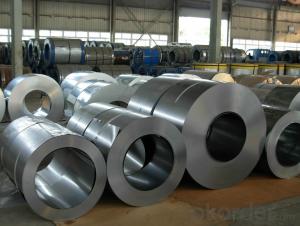Reinforcing Bar Price: Factors Affecting the Cost
When it comes to construction projects, the cost of materials is a significant factor that influences the overall budget. One such material that plays a crucial role in the structural integrity of buildings is reinforcing bars, commonly known as rebars. These steel bars are used to reinforce concrete and prevent it from cracking or breaking under stress. But what determines the price of these essential construction materials? Let’s dive into the factors that can affect the cost of rebars and how they can impact your project’s budget.
The Composition of Rebar
The first thing to consider is the composition of the rebar. Rebars are made from different types of steel alloys, and the type of alloy used can greatly affect the price. For instance, high-quality steel alloys with a higher carbon content are more expensive than those with a lower carbon content. The reason is that these alloys provide better strength and durability, making them ideal for critical construction projects.
Supply and Demand Dynamics
Another important factor that influences the price of rebars is the supply and demand dynamics in the market. When the demand for rebars is high, manufacturers may increase the prices to capitalize on the high demand. Conversely, when the demand is low, they may lower the prices to encourage sales. This fluctuation in demand can be due to various reasons such as economic conditions, construction season, and even natural disasters that may require rebuilding efforts.
Production Costs and Efficiency
The cost of production also plays a significant role in determining the price of rebars. Manufacturers have to account for the cost of raw materials, labor, energy, and transportation. If these costs increase, the price of rebars is likely to go up as well. Additionally, the efficiency of the production process can also affect the price. A more efficient production process can lead to lower production costs, which can then be passed on to the consumers in the form of lower prices.
Transportation and Logistics
Transportation and logistics are another set of factors that can impact the cost of rebars. The distance from the manufacturing plant to the construction site can add to the cost of the rebars, especially if the transportation involves long distances or difficult terrains. Moreover, the mode of transportation, whether it’s by road, rail, or sea, can also affect the cost. The availability and cost of transportation can vary depending on the region and the time of the year.
Government Policies and Regulations
Government policies and regulations can also have an impact on the price of rebars. For example, tariffs on imported steel can increase the cost of rebars if the manufacturer relies on imported steel. Similarly, environmental regulations can affect the production costs, which in turn can affect the price of rebars. It’s essential for manufacturers and contractors to stay updated on these policies and regulations to anticipate any changes in the cost of rebars.
Market Competition
Market competition is another factor that can influence the price of rebars. The presence of multiple manufacturers and suppliers in the market can lead to competitive pricing, which can benefit the consumers. However, if there are only a few manufacturers, they may have the power to set higher prices due to the lack of competition. It’s crucial for consumers to research and compare prices from different suppliers to ensure they get the best deal.
Quality and Certifications
The quality of the rebar and the certifications it holds can also affect its price. High-quality rebars that meet international standards and have certifications from recognized organizations are likely to be more expensive than those without such credentials. Consumers should be aware of the quality and certifications of the rebars they are purchasing to ensure they are getting a product that meets their project’s requirements.
Innovations and Technological Advancements
Lastly, innovations and technological advancements in the steel industry can also influence the price of rebars. New production techniques or materials that can improve the strength and durability of rebars can also increase their cost. However, these advancements can also lead to more efficient production processes, which can eventually lower the prices for consumers.
In conclusion, the price of rebars is influenced by a multitude of factors, from the composition of the steel alloy to market competition and government policies. As a consumer or a contractor, it’s essential to understand these factors to make informed decisions when purchasing rebars for your construction projects. By considering the quality, certifications, and potential cost savings from efficient production processes, you can ensure that you’re getting the best value for your money.

